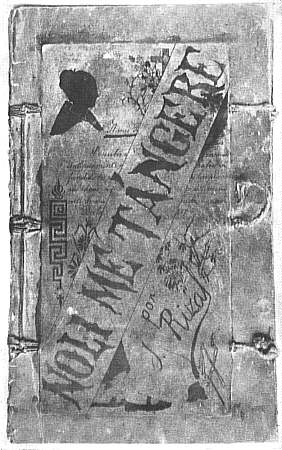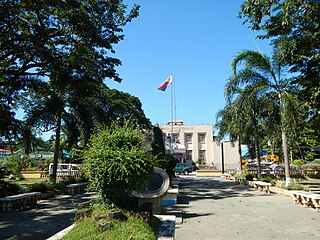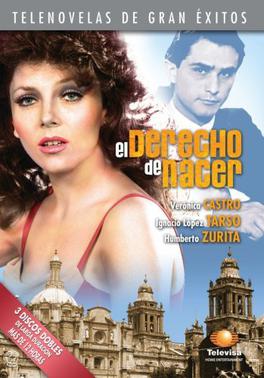Juanita Cruz is a novel written by Magdalena G. Jalandoni in 1966. It was originally written in Hiligaynon.
Juanita Cruz, also known as Nita, is the only daughter of Don Macario and Doña Beatriz, one of the most affluent families from the town of Salog (now known as Jaro) in the province of Iloilo. Her friendship with Lina, a daughter of a poor family, opens her eyes to see the disparity between the rich and the poor. As a child, the early demise of Lina gives Nita her first heartache.
Nita is sheltered and pampered as she grows. She is considered the binukot, the untouched princess, of her rich and powerful family. Her fate starts to change when she meets the already fine man named Elias, the only brother of her friend Lina. Since Elias’ family belongs to a lower social status, Nita's parents and brothers, Edgar and Chito, are against their relationship.
The day before Elias leaves the country to study in Spain under a scholarship grant, the lovers secretly meet in a garden. Unfortunately, they are caught by Don Macario and Dona Beatriz. Soon, Nita's position in her family is replaced by her cousin Mila. Later on, Nita can no longer bear her sufferings, so decides to leave their house and finds herself challenged by the waves of fate that would have drowned her in uncharted depths of the ocean.
Nita embarks on a journey in pursuit of her passions in life. She remains single until she finally met Elias, the man of her dreams, again. The love story of Nita and Elias ends with the death of Elias as one of the high-ranking officers of the revolutionary army against the Spanish colonizers.

Noli Me Tángere is a novel by Filipino writer and activist José Rizal and was published during the Spanish colonial period of the Philippines. It explores inequities in law and practice in terms of the treatment by the ruling government and the Spanish Catholic friars of the resident peoples in the late 19th century.

Apalit, officially the Municipality of Apalit, is a municipality in the province of Pampanga, Philippines. According to the 2020 census, it has a population of 117,160 people.

El derecho de nacer is a Mexican telenovela produced by Ernesto Alonso for Televisa in 1981. Based on the Cuban radionovela of the same name written by Félix B. Caignet adapted for TV by Fernanda Villeli and directed by Raúl Araiza.

Contra viento y marea is a Mexican telenovela produced by Nicandro Díaz González for Televisa in 2005.

Carmen Querida is a Venezuelan telenovela written by Alberto Barrera Tyszka for RCTV and broadcast in 1990. The telenovela lasted 167 episodes and was distributed internationally by RCTV International.
Juana de la Caridad "Juanita" Castro Ruz was a Cuban-American activist and writer, as well as the sister of Fidel and Raúl, both former presidents of Cuba, and Ramón, a key figure of the Cuban Revolution. After collaborating with the Central Intelligence Agency in Cuba in 1964, she lived in the United States until her death.
La venganza is a 1977 Mexican telenovela made by Televisa, produced by Valentin Pimstein and directed by Rafael Banquells, starring Helena Rojo and Enrique Lizalde. La venganza is a romantic heroine story, combining elements of Charles Perrault's Cinderella, George Bernard Shaw's Pygmalion and William Shakespeare's The Taming of the Shrew.

Carrusel is a Mexican children's telenovela produced by Valentín Pimstein for Televisa in 1989. It is based on the Argentinean character Jacinta Pichimahuida, and produced by and broadcast on Televisa in 1989. It covers daily life in a Mexican elementary school and the children's relationships with a charismatic teacher named Ximena. Among other plot devices, it deals with the differences between the upper and lower classes of Mexican society – specifically as seen in a romantic relationship between Cirilo, a poor black boy, and a spoiled white rich girl, Maria Joaquina Villaseñor.

María Mercedes is a Mexican telenovela produced by Valentín Pimstein for Televisa in 1992. It was the first of the "Marías" telenovela trilogy, being followed by Marimar and María la del Barrio. María Mercedes is a remake of the telenovela Rina, which in turn is based on the radionovela Enamorada by Inés Rodena.

El privilegio de amar is a Mexican telenovela produced by Carla Estrada for Televisa. It aired on Canal de las Estrellas from July 27, 1998 to February 26, 1999. El privilegio de amar is a remake of the 1985 Venezuelan telenovela Cristal. El privilegio de amar is the highest-rated television program in Mexico to date; it registered an average of 34.8 percent of TV audience. The telenovela received the TVyNovelas Award for Best Telenovela in 1999.

Los ricos también lloran is a popular telenovela produced in Mexico in 1979, starring Verónica Castro, Rogelio Guerra and Rocío Banquells. Castro also sang the theme Aprendí a Llorar, a song written by Lolita de la Colina. The telenovela was produced by Valentín Pimstein and Carlos Romero, it was directed by Rafael Banquells. The story was written by Inés Rodena and adapted by Valeria Philips.

Pasión is a Mexican telenovela produced by Carla Estrada for Televisa in 2007. It is the fourth historical fiction telenovela produced by Carla Estrada after Alondra, Amor real and Alborada.

Sete Pecados is a Brazilian telenovela produced and broadcast by TV Globo. It was written by Walcyr Carrasco, with Claudia Soto and Andre Ryoki. The directors were Jorge Fernando, Pedro Vasconcelos and Fred Mayrink. Fernando worked with the same directing cast on his previous telenovelas Chocolate com Pimenta and Alma Gêmea. Sete Pecados debuted on 18 June 2007 and aired for the last time on 15 February 2008, with 209 episodes. It aired at 7 p.m., replacing Pé na Jaca in this time slot. In turn it was replaced by Beleza Pura.

Fortunata y Jacinta, was written by Benito Pérez Galdós in 1887 and published in the same year. It is, together with Leopoldo Alas y Ureña's La Regenta, one of the most popular and representative novels of Spanish literary realism. Born in Las Palmas de Gran Canaria, Canary Islands, the author went to Madrid, the capital, to study law at age 18. There he would create a literary world that was present in almost all his writings. The novel was a sensation upon its release because of its scathing critique of the Spanish middle class, and for its frank sexuality. While criticized by political and religious leaders, it was praised by peers of Galdós for its realistic depiction of life amongst all classes in 19th century Madrid.
La Carreta is a 1953 play by Puerto Rican playwright René Marqués. The story follows a family of "jíbaros", or rural peasants, who in an effort to find better opportunities end up moving to the United States.
Huracán is a Mexican telenovela produced by Rebecca Jones and Alejandro Camacho for Televisa in 1997.

Ni contigo... ni sin ti is a Spanish-language Mexican telenovela produced by Mapat L. de Zatarain for Televisa. It premiered on February 28, 2011 and ended on August 26, 2011.
Bianca Vidal is a Mexican telenovela produced by Valentín Pimstein for Televisa in 1982. Bianca Vidal was based on the soap opera María Salomé, original of Inés Rodena which was then elongated by Sacrificio de mujer from the same author.

El alma no tiene color is a Mexican telenovela produced by Juan Osorio for Televisa in 1997. It is based on an original story by Alberto Gómez, inspired by the 1948 Mexican film Angelitos negros.
El secreto de Puente Viejo was a Spanish soap opera produced by Boomerang TV that originally aired from 23 February 2011 to 20 May 2020 on Antena 3.